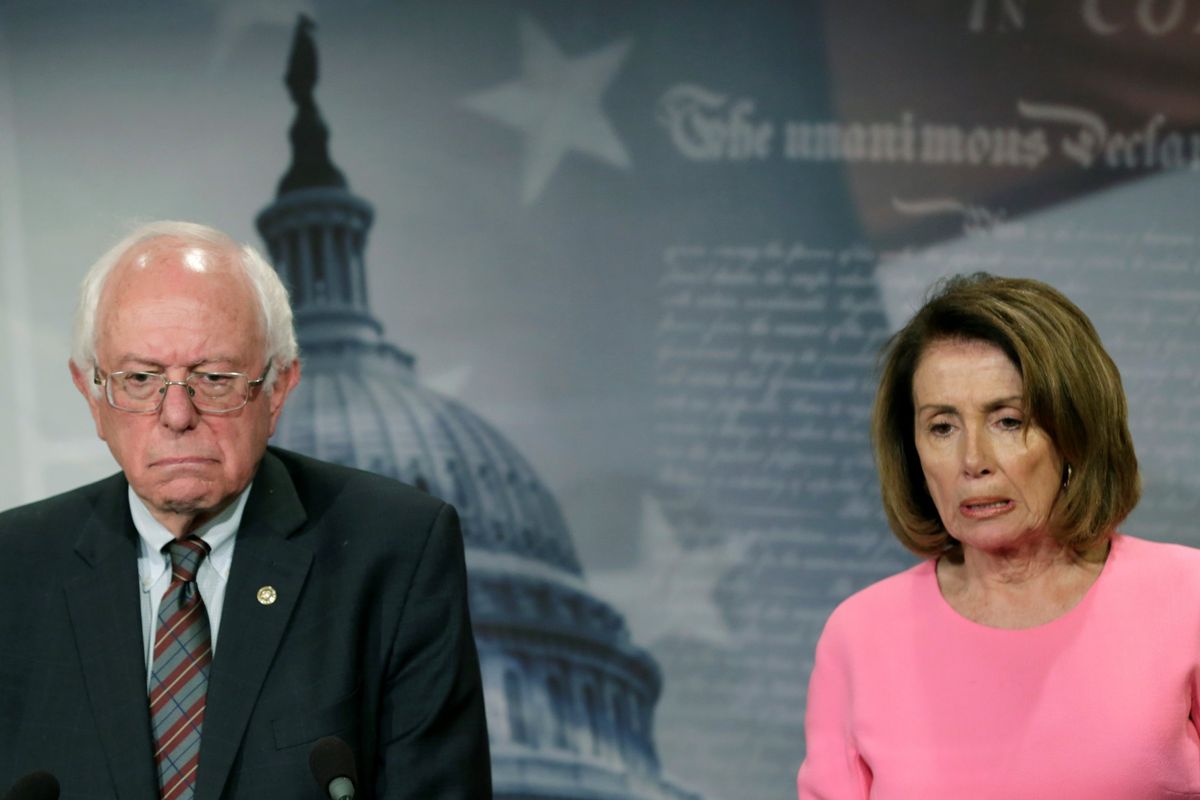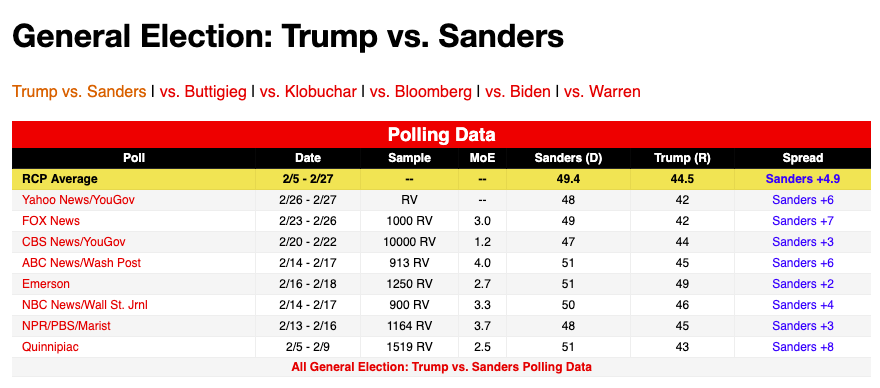Speaker Pelosi downplays concerns about Sanders, says Democrats are unified

A few minutes every morning is all you need.
Stay up to date on the world's Headlines and Human Stories. It's fun, it's factual, it's fluff-free.
According to a February 27 New York Times report, Speaker Nancy Pelosi has insisted both publicly and in private meetings with colleagues that Democrats will support whoever wins the party’s nomination for president.
Although Pelosi has called for party unity, she has started to distance members of the House from the presidential election.
According to The New York Times, moderate Democrats have told Speaker Pelosi they worry that current frontrunner Bernie Sanders will win the party’s presidential nomination. These members reportedly fear that running with Sanders at the top of the ticket would result in Democrats losing control of the House of Representatives.
Pelosi has so far refused to embrace Sanders’ policies, including universal healthcare. Instead, reports suggest that Pelosi is pushing House Democrats to run under a “For the People" agenda. Observers say this platform, which focuses on good paying jobs, rooting out corruption and lowering the cost of healthcare and prescription drugs, was what helped Democrats win the House majority in 2018.
“We have to win in certain particular areas," she told reporters. “It is not unusual for a party platform or the candidates for president to have their own agenda that they would put forth, and it’s not unusual for the House of Representatives to have its agenda as well."
“My responsibility is to make sure that those we elected last time return to Congress, keep the majority and add to our numbers," Pelosi added. “The presidential is its own race, and contrary to what you may be hearing or writing, we are all unified. Whoever the nominee is of our party, we will wholeheartedly support."
In addition to assuaging the anxieties of moderate Democrats, The New York Times reports that Pelosi needs to manage the political calculations of about 40 House Democrats. Known as frontliners, these Democrats flipped Republican-held seats, many in districts won by President Trump, in the 2018 midterms.
In one closed-door meeting, Pelosi urged Democrats to “keep our eye on the ball" and focus on defending their seats and defeating President Trump.
Despite the alarm of some Democratic moderates over Sanders, Pelosi told reporters that she was comfortable with him being the Democratic nominee. The Vermont Senator has become the frontrunner in the race after winning the popular vote in the Iowa, New Hampshire and Nevada primaries, the first candidate in election history to do so.
However, Pelosi doesn’t share Senator Sanders’ belief that “the person with the most votes should get the nomination." Instead, she said, “The person who will be nominated will be the person who has a majority plus one."
Democratic leaders want to stop Sanders
Another New York Times article laid bare the tension over Sanders that exists in parts of the Democratic party.
The newspaper interviewed a host of Democratic officials, ranging from party strategists to senior aides. They also spoke with 93 superdelegates, some of them former presidents. Their discussions revealed overwhelming opposition to giving Bernie Sanders the nomination if he falls short of the required number of delegates.
The newspaper reports that Democrats from across the country fear that Sanders would lose an election against President Trump, with House and Senate candidates in swing states also losing their election bids under a Sanders ticket.
Most of those interviewed by the newspaper predicted there would be no outright winner of the primaries. Instead, they think a brokered convention is the likely scenario at the July Democratic Convention in Milwaukee, something that hasn’t happened since 1952.
Only nine of the 93 superdelegates interviewed by The New York Times said that Sanders should become the nominee if he arrives at the convention with a plurality of delegates.
Alongside their reluctance to make Sanders the nominee, those interviewed told the newspaper that they were willing to risk damaging the Democratic party to stop the Vermont Senator from winning the nomination.
Although there has been no public attempt to undercut Sanders, the report suggests that some in the Democratic party have inquired about forming a super PAC aimed at blocking Sanders. Others support asking Senator Sherrod Brown of Ohio, who opted against running for president last year, to come forward as a candidate if there is a brokered convention.
Other superdelegates suggest that the nominee should be someone who has already dropped out of the race, like Kamala Harris, who suspended her campaign after consistently polling in single digits.
There is also talk in Democratic circles that former President Barack Obama should get involved in the contest to broker a truce between the moderate and progressive wings of the party. Failing that, The New York Times reports, some Democratic officials want to nominate Michelle Obama as vice president, or Nancy Pelosi as the nominee, to give the party a figure to rally behind.
Opinion polls paint a different picture
Although some Democrats say Sanders is unelectable, opinion polls suggest otherwise. Sanders is ahead of all his rivals with a national average of 29 percent. Joe Biden is in second place with 17 percent.
Bernie Sanders is also polling higher than anyone else in many of the delegate-rich states that will vote on Super Tuesday. He has commanding leads in California and Texas, where the winner will get more than 600 of the 1,991 delegates needed to secure the Democratic nomination.
The New York Times report suggests that Sanders is unpopular in the Democratic establishment but that he ranks as the preferred candidate of voters, both Democratic and Independent, and the one voters believe as the most likely to beat Trump.
A recent Fox News poll had Sanders beating the president by 7 points.

To win the election, Democrats need to win back states that voted Republican for the first time in decades in 2016. In three of those states, Michigan, Wisconsin and Pennsylvania, opinion polls suggest Sanders would beat President Trump.
[article_ad]




Comments ()